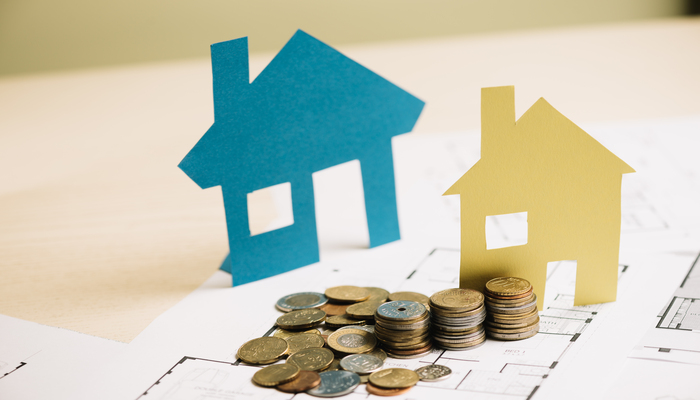Social Housing Loans are a crucial solution to address the growing housing crisis, providing access to quality housing for low- and moderate-income families. These loans offer an affordable path to building fairer and more resilient communities.
With increasing urbanization and a shortage of affordable housing, they have become one of the most effective tools for improving living conditions in many areas. They not only help build homes but also foster social integration and economic development.
If you’re interested in learning how these loans can transform the lives of many families and contribute to building sustainable communities, keep reading. Let’s dive into the benefits and positive impact on society.
What Are Social Housing Loans?
Social Housing Loans are loans provided by the government or financial institutions designed to support the construction and development of affordable housing for low- to moderate-income families.
These loans are aimed at addressing the gap in the housing market, where private developers may not have incentives to build for lower-income groups. Social Housing Loans help bridge this gap by making housing more accessible to those who might otherwise be excluded from the property market.
In South Africa, the government has placed a strong emphasis on providing affordable housing solutions to combat overcrowding, homelessness, and the overall housing deficit. These loans, typically offered at low-interest rates and with favorable repayment terms, allow developers to build or refurbish affordable housing projects that can be sold or rented to qualifying individuals or families.
The Role of Social Housing Loans in Building Sustainable Communities
Sustainability in housing goes beyond simply building homes. It involves creating neighborhoods that are not only economically accessible but also socially, environmentally, and culturally sustainable. Social Housing Loans play a pivotal role in achieving these goals by fostering community development and long-term social stability.
-
Economic Empowerment: One of the main benefits of Social Housing Loans is that they help reduce the financial burden on low-income families. By providing affordable housing options, these loans enable individuals and families to save money that would otherwise be spent on rent. This financial relief can empower residents to invest in education, healthcare, and other aspects of their well-being, leading to a higher quality of life.
-
Social Integration: Affordable housing through Social Housing Loans can promote social inclusion by allowing people from different backgrounds to live in integrated communities. This reduces the fragmentation often seen in segregated neighborhoods and promotes a sense of belonging. When individuals of diverse social and economic backgrounds live together, it fosters understanding, cooperation, and shared values, which are essential for building cohesive communities.
-
Access to Infrastructure and Services: Social Housing Loans are often part of larger development projects that include essential infrastructure such as roads, schools, healthcare facilities, and public transportation systems. This improves the overall living conditions of the community and ensures that residents have easy access to necessary services. The availability of such infrastructure enhances the sustainability of the community by making it easier for residents to work, access education, and maintain a healthy lifestyle.
-
Environmental Sustainability: Sustainable communities are not just about the people; they also prioritize the environment. Many Social Housing Loans are linked to green building practices, such as energy-efficient homes and eco-friendly materials. This reduces the carbon footprint of new developments and ensures that communities are built with long-term environmental considerations in mind. Sustainable design features can also lead to lower utility costs for residents, further enhancing the affordability of housing.
-
Employment Opportunities: Large-scale housing projects funded by Social Housing Loans can stimulate the local economy by creating job opportunities in construction, maintenance, and other related sectors. These projects often provide employment to individuals within the community, helping reduce unemployment and boosting economic activity in the region. Job creation in the housing sector also contributes to the overall development of infrastructure and services in the area, enhancing the community’s overall resilience.
The Impact of Social Housing Loans on South Africa’s Housing Crisis
South Africa faces a significant housing crisis, with millions of people living in informal settlements or overcrowded conditions. The country has an estimated backlog of over 2.1 million housing units, and the need for affordable housing is growing rapidly. The government’s initiatives to address this issue have been crucial, and Social Housing Loans are a key part of these efforts.
-
Meeting Growing Demand: The demand for affordable housing in South Africa is expected to rise as the population grows and urbanization increases. Social Housing Loans can help meet this demand by enabling the construction of more affordable units in both urban and rural areas. These loans not only assist in addressing the current housing deficit but also ensure that there is a continuous supply of housing in the future.
-
Improving Living Standards: The provision of affordable housing through Social Housing Loans has the potential to significantly improve the living standards of South Africans. For many, moving into a new, affordable home means access to better living conditions, reduced overcrowding, and improved health outcomes. Having access to quality housing allows individuals and families to thrive, creating a positive cycle of development that benefits the entire community.
-
Reducing Informal Settlements: Informal settlements, or “shacks,” are a pervasive issue in South Africa. These areas are often characterized by inadequate infrastructure, lack of sanitation, and poor living conditions. Social Housing Loans help provide an alternative to these informal settlements by offering more secure, well-constructed housing options for those living in vulnerable conditions.
Challenges and Considerations
While Social Housing Loans play an essential role in addressing the housing crisis, there are challenges that need to be overcome to ensure their effectiveness:
-
Funding and Financial Sustainability: The demand for affordable housing far exceeds the availability of funding. Ensuring that Social Housing Loans are adequately funded and that projects remain financially viable over the long term is crucial. Without sustainable funding, the impact of these loans may be limited.
-
Land Availability: In some areas, the availability of land for development can be a barrier to expanding affordable housing projects. Local governments and developers need to collaborate to identify suitable land for housing construction and ensure that zoning regulations support affordable housing initiatives.
-
Quality Assurance: To truly create sustainable communities, the quality of construction must be prioritized. While affordability is important, it’s equally crucial that homes built with Social Housing Loans are safe, durable, and resilient to environmental challenges. Ensuring quality standards in construction will help improve the long-term sustainability of housing developments.
Conclusion
Social Housing Loans are an essential tool in addressing South Africa’s housing challenges. By providing affordable housing options, these loans help build sustainable, resilient communities that can thrive for generations.
These loans contribute not only to the construction of homes but also to economic empowerment, social integration, and improved access to infrastructure. With continued support from the government, financial institutions, and developers, they are pivotal in raising living standards and creating a more inclusive society.
Ultimately, Social Housing Loans go beyond providing a roof—they create spaces where communities can grow, work, and thrive. Through these loans, South Africa can build homes and sustainable communities that will serve as the foundation for future generations.





